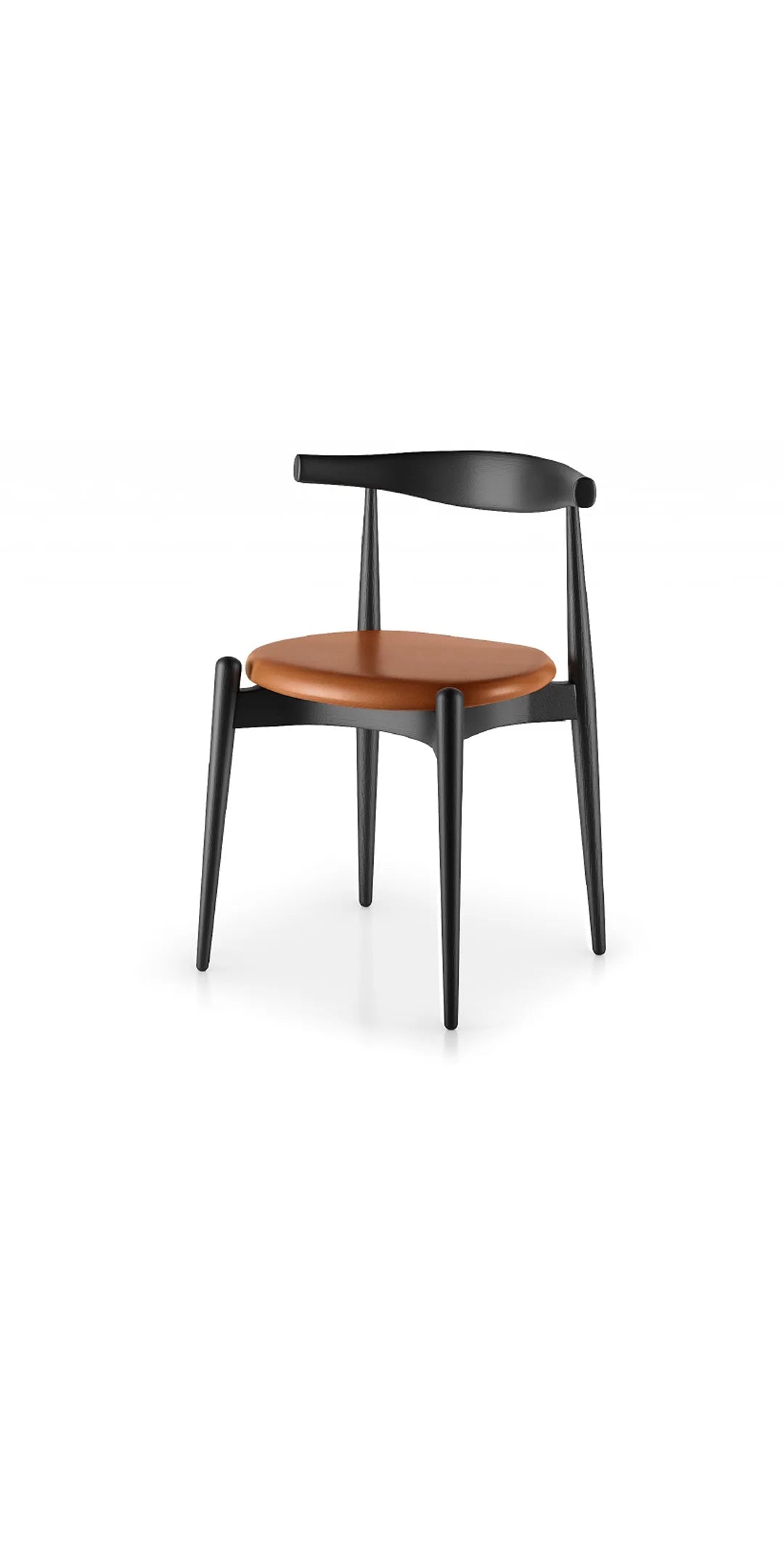
The Elbow Chair: 20 | Hommage À Hans Wegner, 1956
The Elbow Chair 20: Upholstered

The Elbow Chair: 20 | Hommage À Hans Wegner, 1956
The Elbow Chair 20: Upholstered
Hommage À Hans Wegner
The Elbow Chair 20: Upholstered
The Elbow Chair 20: Upholstered
Couldn't load pickup availability
The Elbow Chair was originally designed by Hans J. Wegner in 1956 but not put into production until 2005. Originally set aside due to the complexity of its design, technological advancements eventually allowed for its production.
The Elbow Chair features a steam-bent backrest crafted from a single piece of wood, providing elbow and lower back support. Its seat is made from 11 layers of laminated veneer, padded then upholstered. The seat appears to be floating on its frame and does not need a crossbar, contributing to its stackable Design.
Elbow Chair shown in Umbria Italian Aniline Leather on Black Painted Oak Frame.
The Archetype Forms Elbow Chair: Upholstered is a faithful reproduction of the original Hans J. Wegner Elbow Chair, Model CH20.
Share
Distinguishing Features
Distinguishing Features
Designer
Designer
Hans J. Wegner
Hans J. Wegner (1914-2007) was a renowned Danish furniture designer, celebrated for his contributions to mid-century modern design and his mastery of furniture craftsmanship. Born in Tønder, Denmark, Wegner’s designs were characterized by their organic functionality, a blend of traditional woodworking techniques and modernist principles. His work was marked by an emphasis on functionality and a deep respect for the materials, often working with wood, plywood, metal, caning, and papercord.
Wegner’s designs, including the iconic Wishbone Chair and Shell Chair, have become symbols of Danish design, embodying the country’s reputation for high-quality, modern furniture that balances human values with modernity. His influence on furniture design was profound, with his works exhibited in major institutions worldwide, such as The Museum of Modern Art in New York and Die Neue Sammlung in Munich.
Dimensions
Dimensions
Width: 54 cm
Height: 73 cm
Depth: 47 cm
Construction
Construction
Frame: Solid & Steam-Bent Beech, Oak or Custom Selection from Archetype Forms
Frame Finish: Oiled, Soaped, Lacquered, or Custom Selection from Archetype Forms
Upholstery: Custom Selection of Premium Leather or Fabric from Archetype Forms
Seat Padding: Formed Polyurethane Foam
Product Details
Product Details
Archetype Forms Elbow Chair: Upholstered
The Elbow Chair offers many seating positions, and its stackable design makes it versatile for dining and working spaces. The CH20 Elbow Chair design won the ICFF Editors' Award for furniture in New York in 2005. It reflects Wegner’s commitment to functionalism, craftsmanship, and the use of natural materials.
Buy the Elbow Chair, originally designed by Hans J. Wegner, online here in Canada and the USA.
Reproduction
Reproduction
The Archetype Forms Elbow Chair: Upholstered is a faithful reproduction of the original Hans J. Wegner Elbow Chair, Model CH20. It is a tribute to his enduring legacy. This item is not manufactured by or affiliated with the original designer(s) and associated parties.
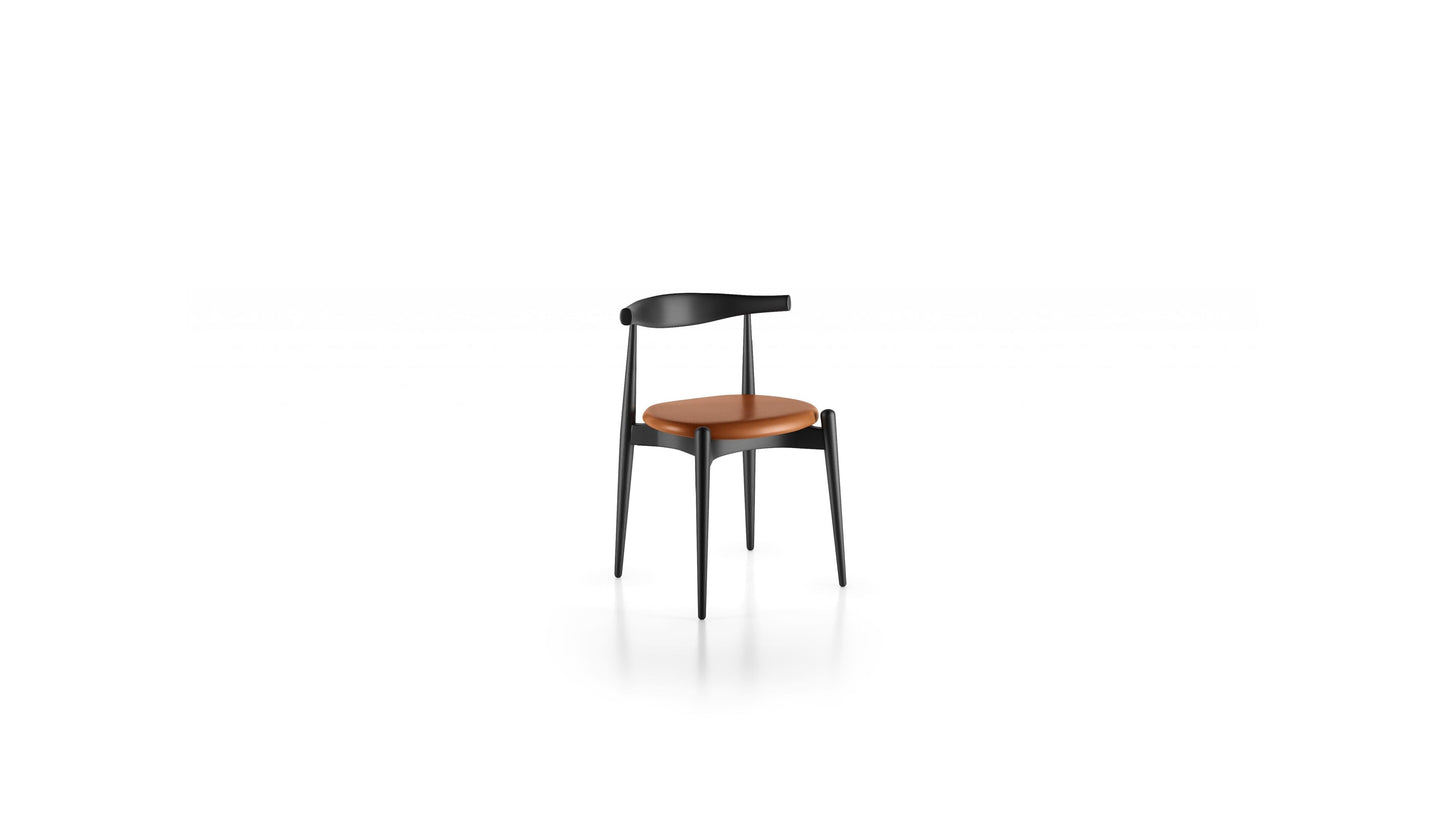
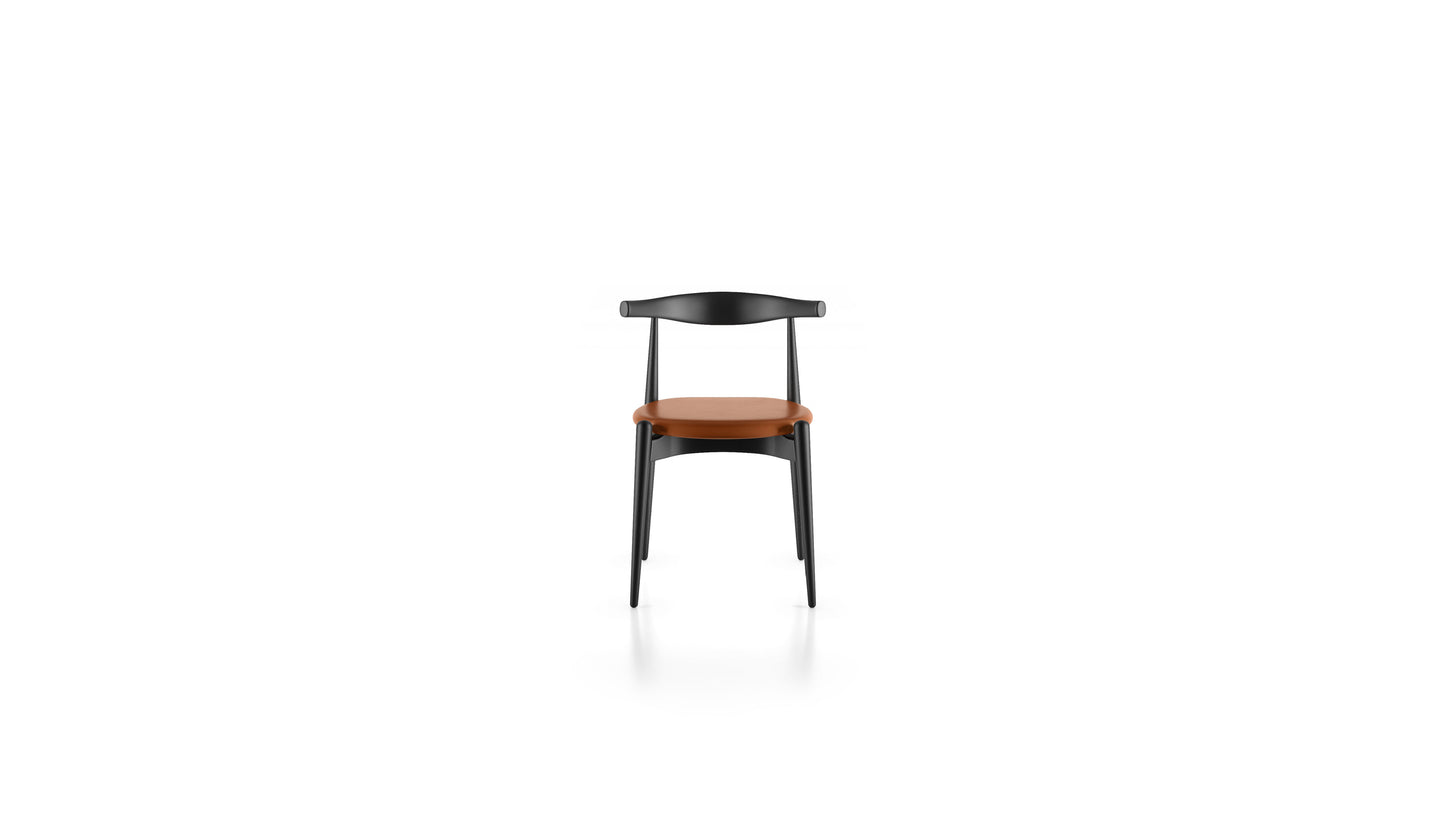
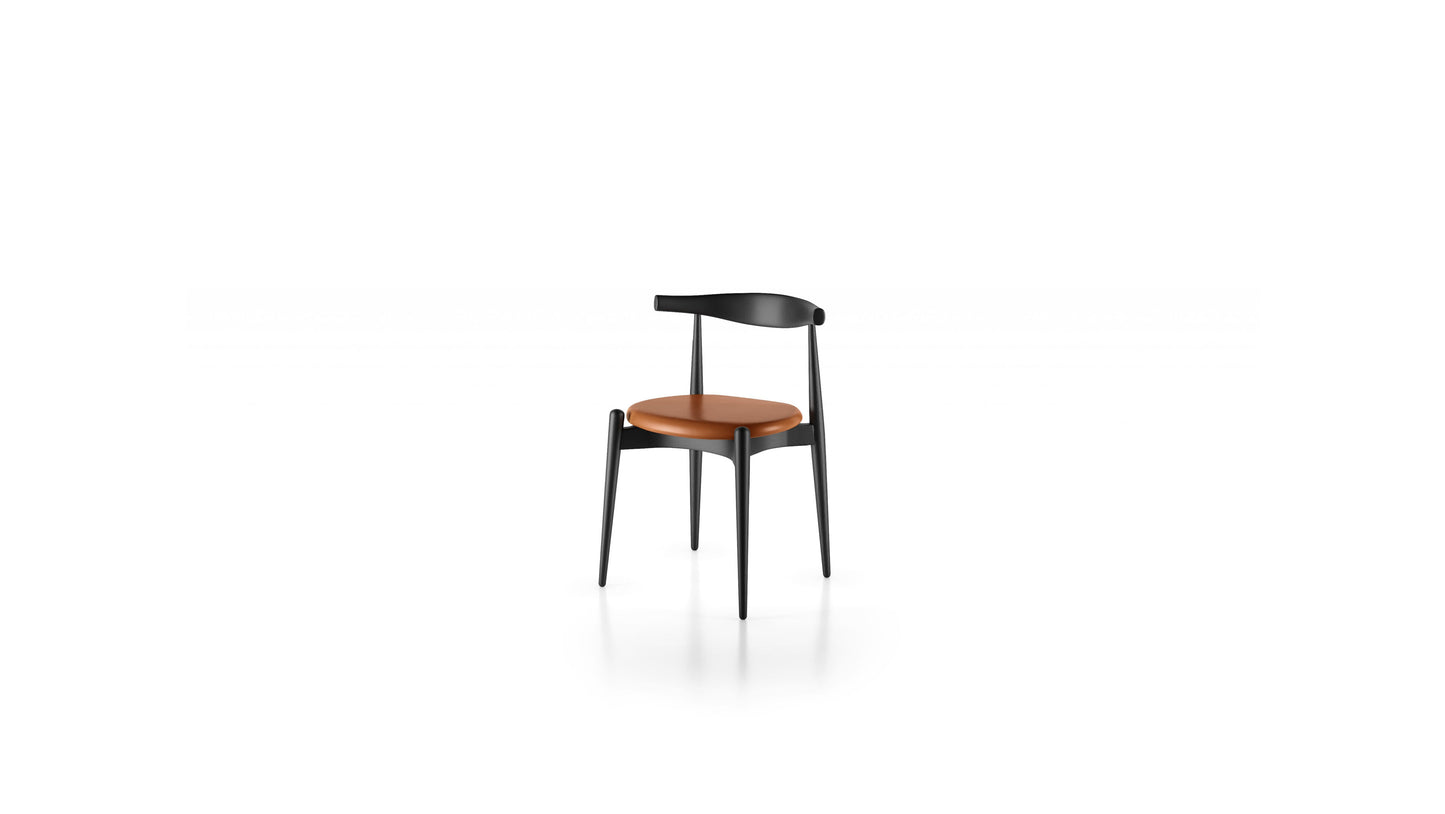
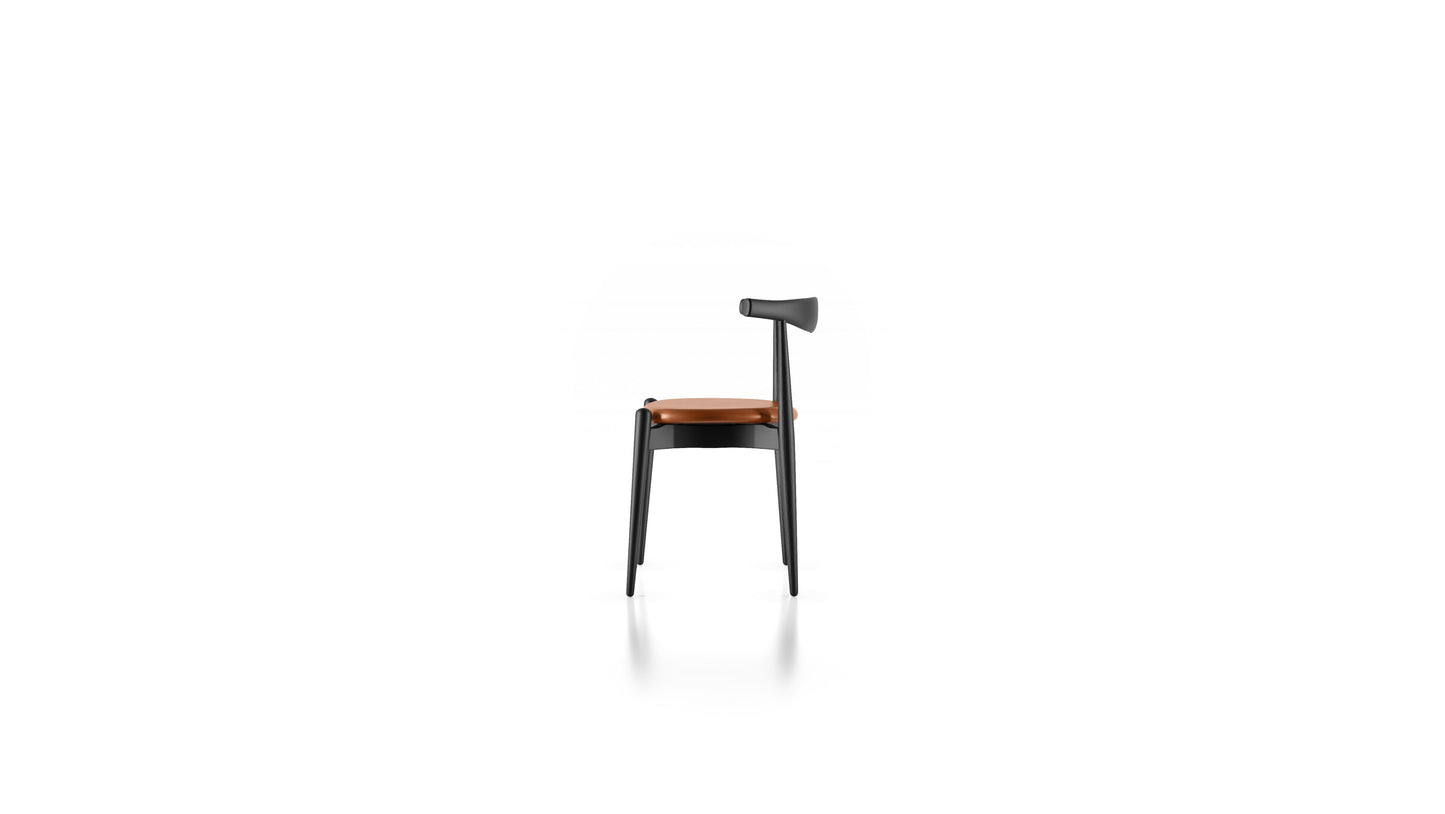
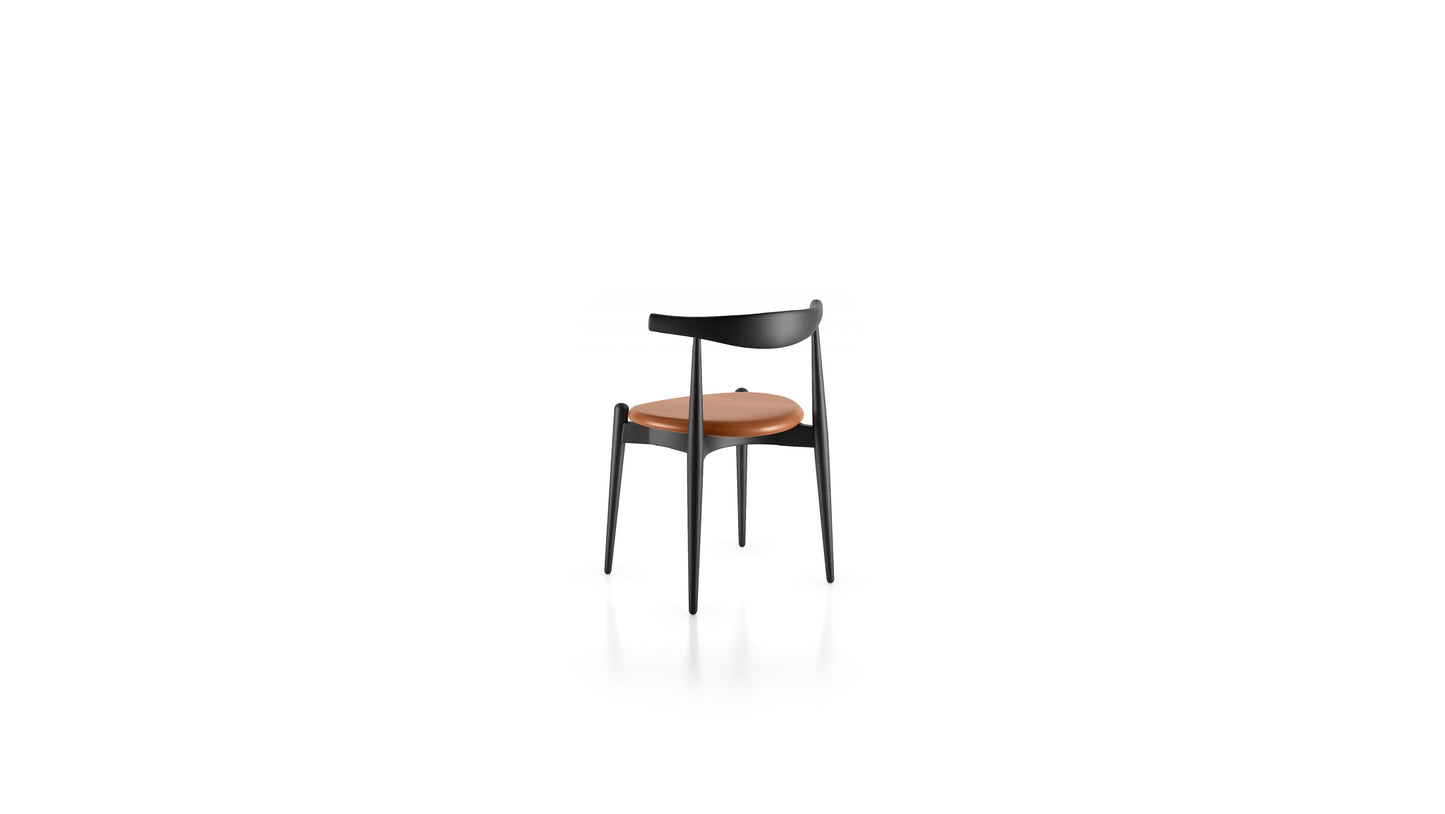
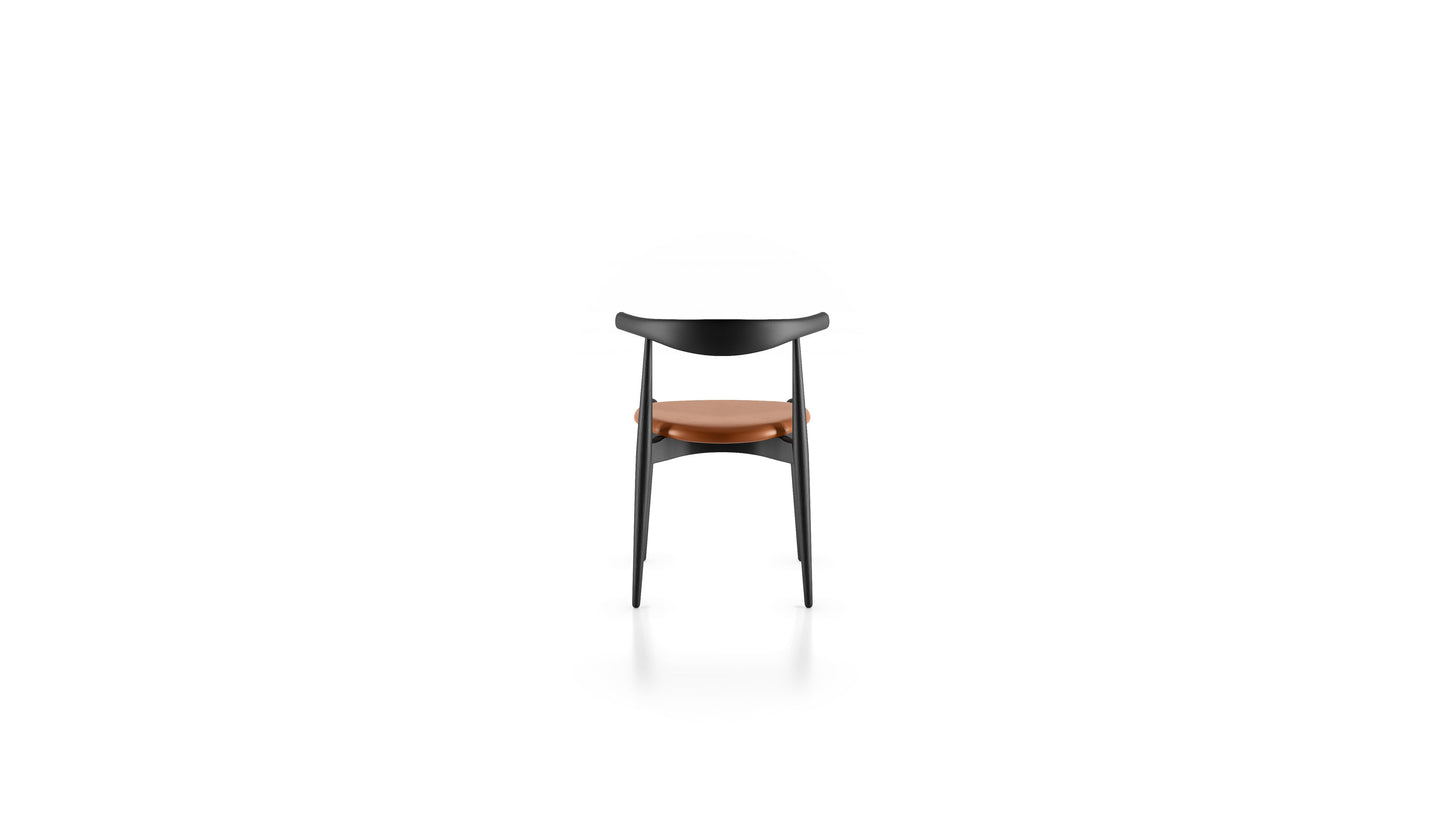
Product Information
Distinguishing Features
Designer
Hans J. Wegner
Hans J. Wegner (1914-2007) was a renowned Danish furniture designer, celebrated for his contributions to mid-century modern design and his mastery of furniture craftsmanship. Born in Tønder, Denmark, Wegner’s designs were characterized by their organic functionality, a blend of traditional woodworking techniques and modernist principles. His work was marked by an emphasis on functionality and a deep respect for the materials, often working with wood, plywood, metal, caning, and papercord.
Wegner’s designs, including the iconic Wishbone Chair and Shell Chair, have become symbols of Danish design, embodying the country’s reputation for high-quality, modern furniture that balances human values with modernity. His influence on furniture design was profound, with his works exhibited in major institutions worldwide, such as The Museum of Modern Art in New York and Die Neue Sammlung in Munich.
Dimensions
Width: 54 cm
Height: 73 cm
Depth: 47 cm
Construction
Frame: Solid & Steam-Bent Beech, Oak or Custom Selection from Archetype Forms
Frame Finish: Oiled, Soaped, Lacquered, or Custom Selection from Archetype Forms
Upholstery: Custom Selection of Premium Leather or Fabric from Archetype Forms
Seat Padding: Formed Polyurethane Foam
Product Details
Archetype Forms Elbow Chair: Upholstered
The Elbow Chair offers many seating positions, and its stackable design makes it versatile for dining and working spaces. The CH20 Elbow Chair design won the ICFF Editors' Award for furniture in New York in 2005. It reflects Wegner’s commitment to functionalism, craftsmanship, and the use of natural materials.
Buy the Elbow Chair, originally designed by Hans J. Wegner, online here in Canada and the USA.
Reproduction
The Archetype Forms Elbow Chair: Upholstered is a faithful reproduction of the original Hans J. Wegner Elbow Chair, Model CH20. It is a tribute to his enduring legacy. This item is not manufactured by or affiliated with the original designer(s) and associated parties.
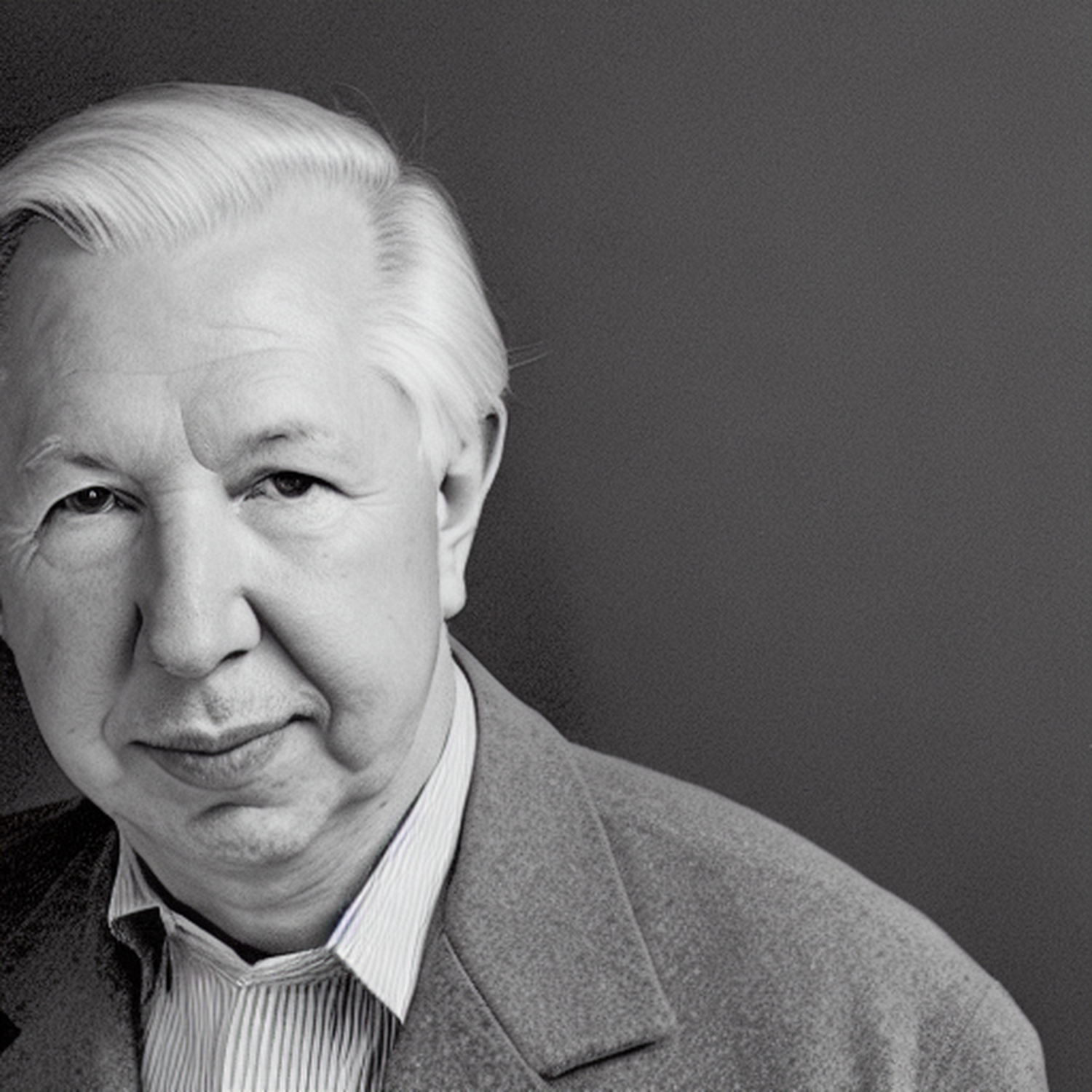
Hommage À Hans Wegner
Hans J. Wegner (1914-2007) was a renowned Danish furniture designer, celebrated for his contributions to mid-century modern design and his mastery of furniture craftsmanship. Born in Tønder, Denmark, Wegner’s designs were characterized by their organic functionality, a blend of traditional woodworking techniques and modernist principles. His work was marked by an emphasis on functionality and a deep respect for the materials, often working with wood, plywood, metal, caning, and papercord.
Wegner’s designs, including the iconic Wishbone Chair and Shell Chair, have become symbols of Danish design, embodying the country’s reputation for high-quality, modern furniture that balances human values with modernity. His influence on furniture design was profound, with his works exhibited in major institutions worldwide, such as The Museum of Modern Art in New York and Die Neue Sammlung in Munich.





